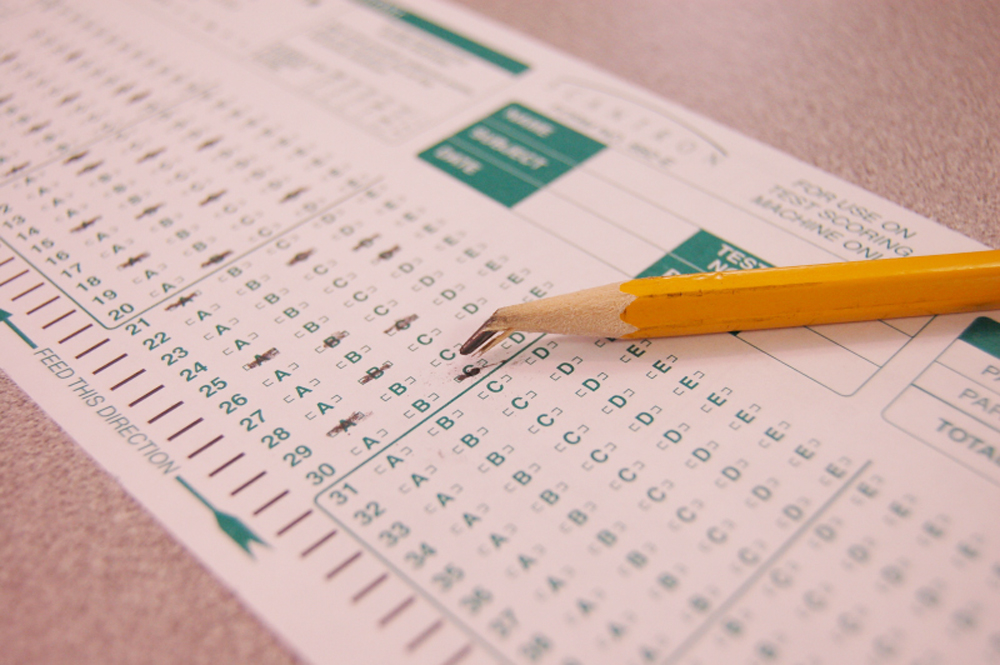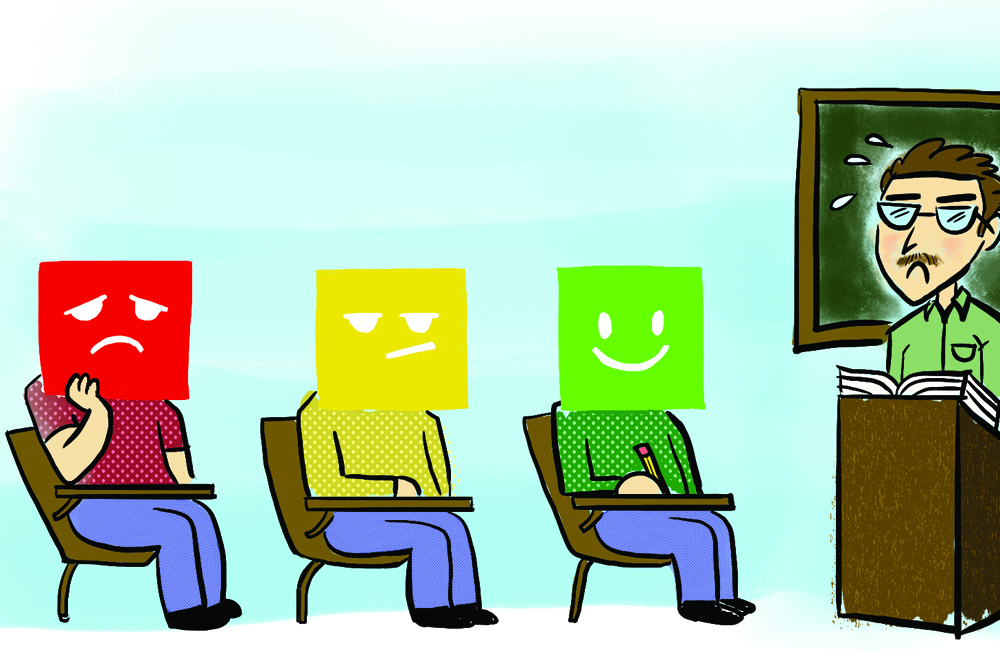There’s a lot of conversation in the field of education about standardized tests. If you’re a student like me, there’s a good chance that your views on the institution of standardized testing, like mine, are negative.
When I decided to tackle an article on standardized tests I was planning to go with the research aspect of it; I wanted to see how seriously universities take them. I’ve heard that standardized tests are starting to matter less.
Are colleges less concerned now about a student’s SAT, ACT or GRE scores than they have been in the past?
Although this is an important question, I started to realize that it might be interesting to gather the thoughts and views of others who have been through the whole standardized testing procedure. With this in mind, I created a post on Facebook asking my peers for their opinions. Not surprisingly, the responses I received from both students and teachers alike were very similar. The responses I gathered were passionate as well, meaning they were a lot more complex than, “I hate standardized tests, they suck!”
I recently took the GRE in order to apply for graduate school. The last time I took a standardized test before the GRE was in high school, but I’ll get to that shortly.
Before I took the GRE, I decided I would try my luck with a few free practice tests that were offered online on different websites. I had a decent idea of what I was getting myself into after those practice tests, but I was still fairly upset after taking the actual exam. I did find some faults with the literature section; many of the answers to what seemed like specific questions were very broad and generalized. My main issue, though, was with the math section which, for me, seemed absolutely irrelevant.
I’m not saying math is irrelevant; far from it. But I’m applying for grad school so that I can obtain my master’s in English; why do I need to know how much volume is left in a cube if there is a cylinder inside of it? I can partly blame my lack of math knowledge on the excruciatingly terrible math program my high school used, but the point is that I’m being tested on subject matter that is out of my area of focus. Is it fair that my chances of getting into grad school might be affected by my scoring lower on a section that isn’t applicable to my studies?
One of the biggest problems with standardized testing is the cost. I paid $249 to take the GRE, and the SAT costs about $52 to register for these days. There are certain preparatory classes available for the GRE, and perhaps hiring a tutor would have helped my math score. Perhaps, but only if I had the means or the desire to pay the over $2,100 that it costs to hire a tutor.
This calls integrity into the question. A former teacher explained that this business, which is exactly what it is, is following a market system—Fordism, if you will. The people who supply these tests seem to be mass producing these generic exams at a low cost and then selling them at an extravagantly high cost. To individualize these standardized tests for you or for me would not make much sense in terms of making money. That would require more work, which would mean more money spent, which equals less profit (profit being a very important word).
Probably the most hated standardized test is the SAT. I’m not exactly sure what scholastic aptitude means or what the test is supposed to measure. When I took the SAT as a high school senior I scored 1,710 points out of the possible 2,400 points, resulting in missing a total of 690 points. But I really have no idea what that actually means. What does that score of 1,710 say about me as a person, a student, a colleague or as someone applying for a graduate program? Does a missed 690 points really represent my intelligence, my knowledge or my ability to learn?
I’ve even heard a call for the SAT to be abolished because it is unclear what the exam is testing and what the scores actually represent. I’ve had a couple people tell me that they took AP tests for college credit, which means taking exams in courses such as AP Writing, AP Government and Politics, and AP Biology. These people did rather well on those specified AP exams, but somehow managed to get what was described as “lackluster” scores on the SAT. One person even received the highest possible score on their AP Writing exam only to get a lower score in that same subject on the SAT which, unfortunately, affects their chances of getting into a program or receiving scholarships and awards.
Another former teacher of mine asked, “How can it be that a university won’t accept an AP test score in an area, but instead expects you to sign up and pay for an additional test of a single hour in that same subject area?” That’s a wonderful question, really. And what she said next sums it up neatly: “[It] seems to me a way to make sure those with money, time and the ability to pay…are the ones who get into those colleges.” Once again: profit. Noting that both the SAT and AP exams are operated by The College Board, why is it that one seems to be so much more important than the other?
How effective are these tests? Just two years ago, Finland—a country that implements very few standardized tests—was ranked number one among countries with the best education in a Huffington Post article. The United States came in at a low 17.
A lot of the time it seems that these tests do more harm than good by putting barriers on our educations. Perhaps the abolishment of tests like the SAT should be implemented by education systems. Even teachers and tenured professors agree that standardized tests are ineffective and nonsensical and, honestly, they would know best.
Special thanks to all my peers that provided input on this heavy topic.






